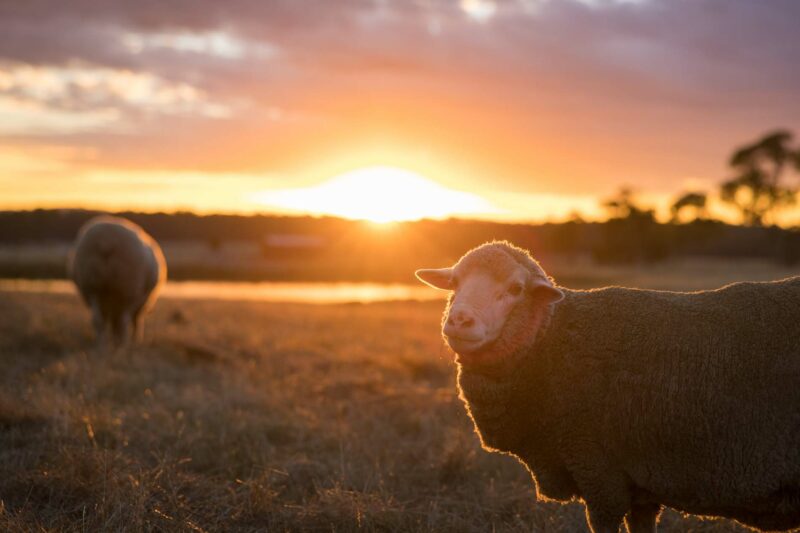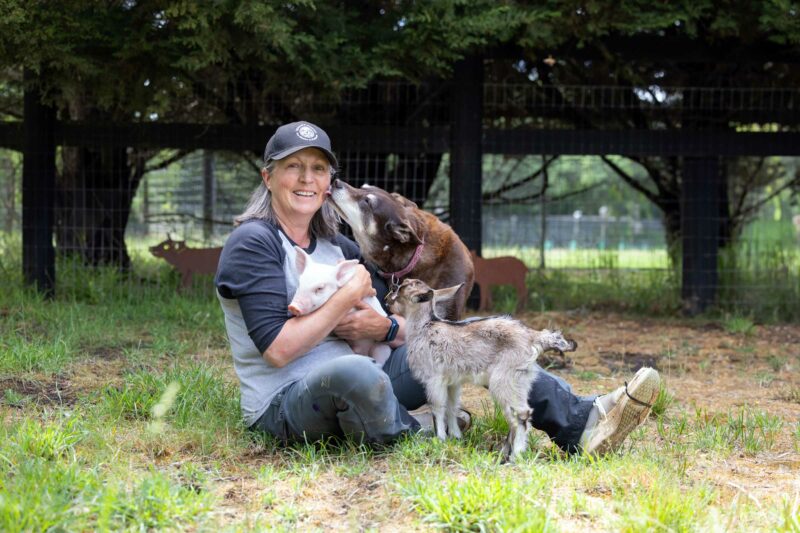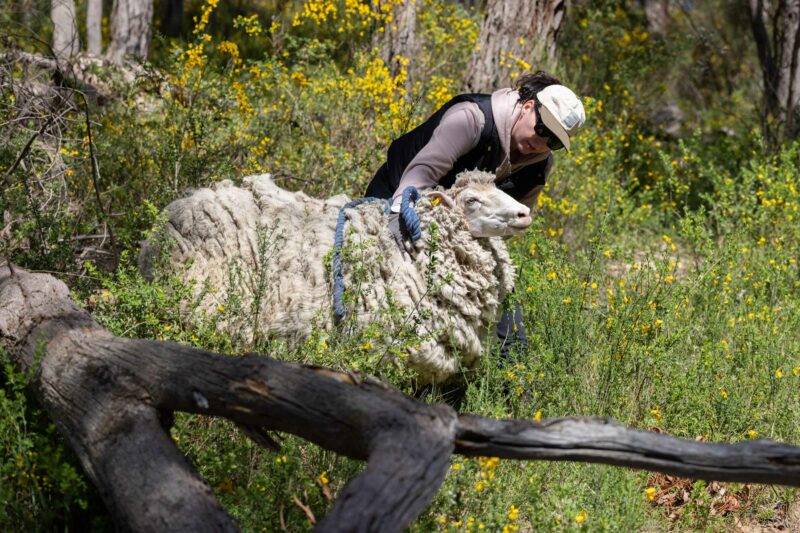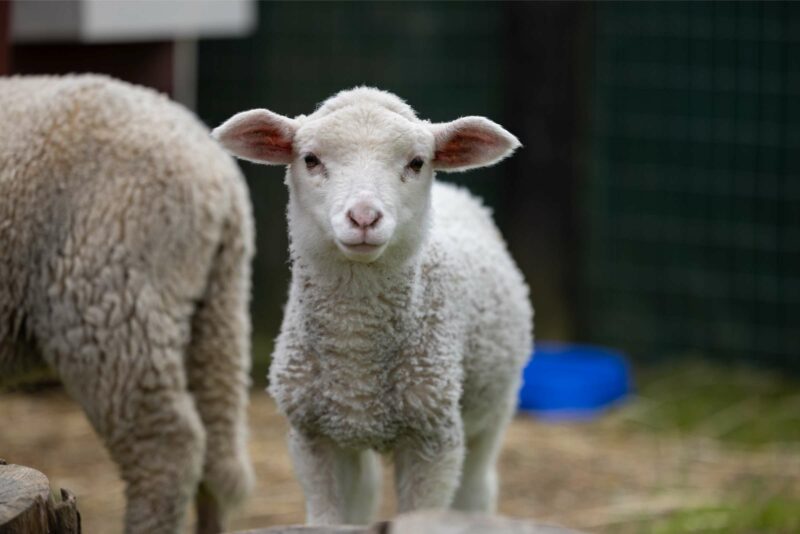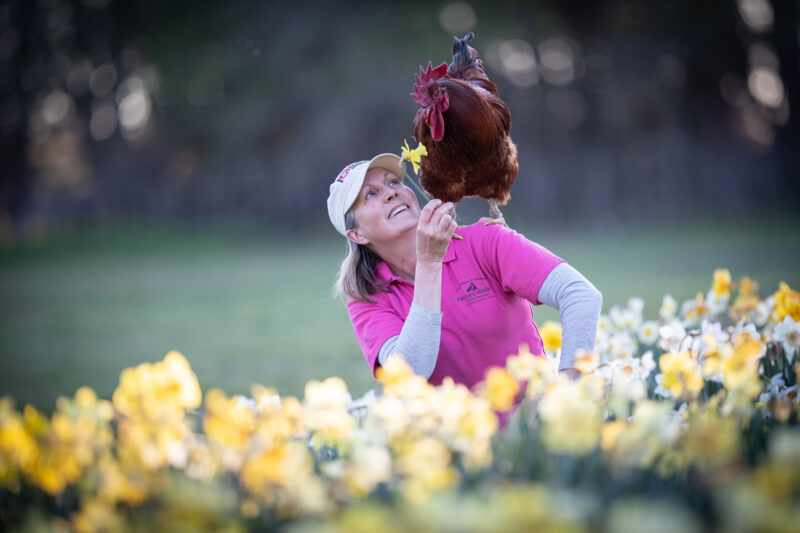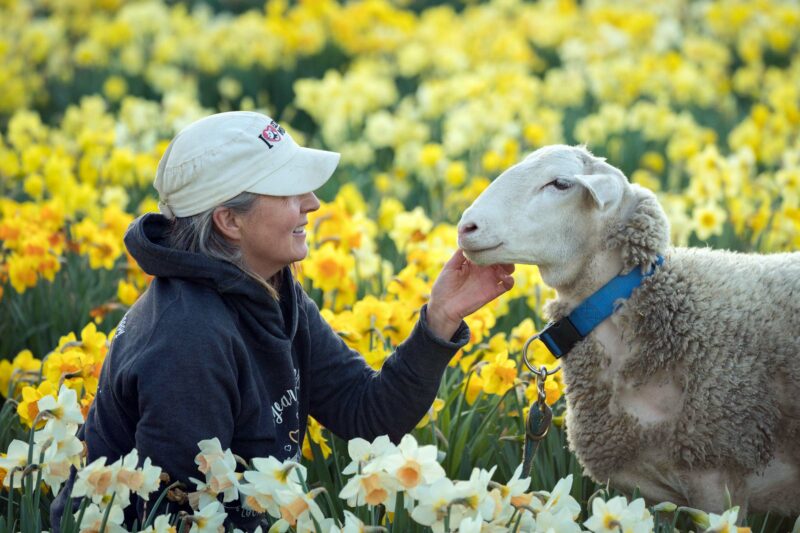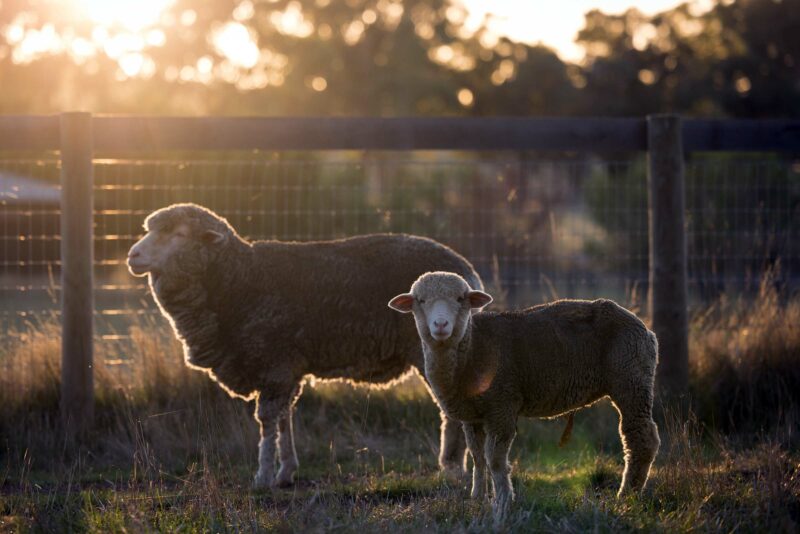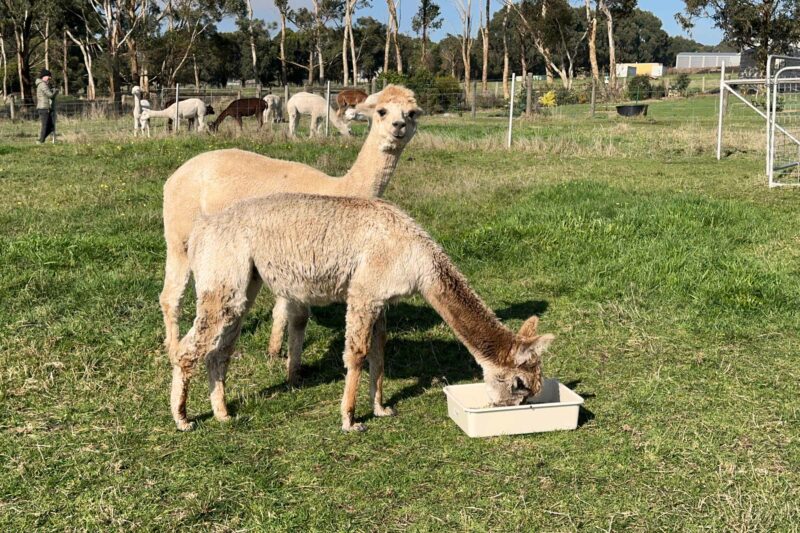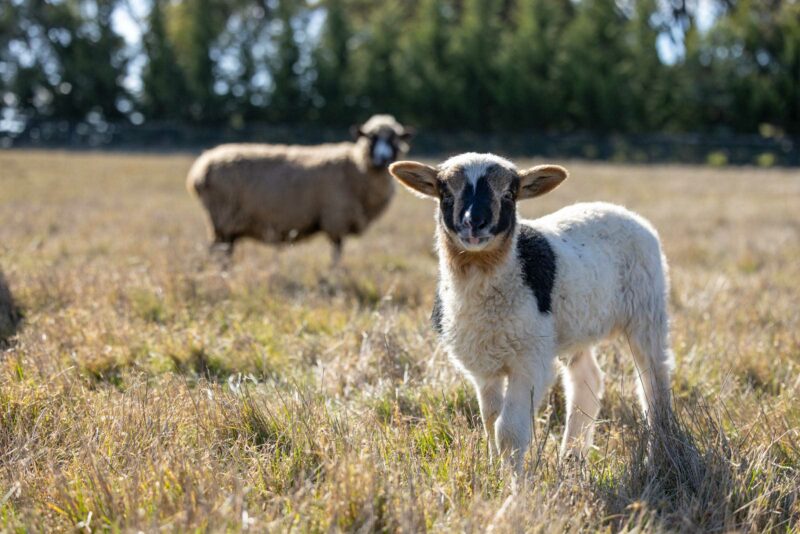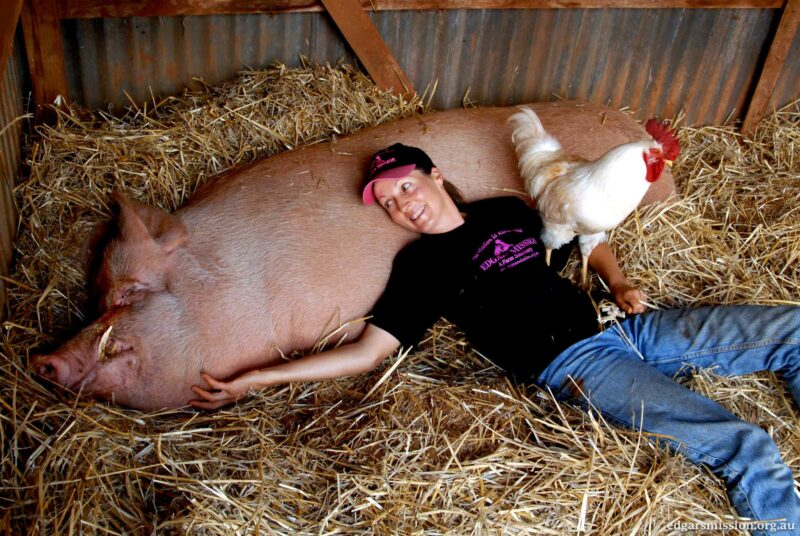
Rambo Sheep first stamped his hoof at Edgar’s Mission several years ago now – a once cute orphan little lamb who had been lovingly, albeit naively, bottle reared by a young family. But a wee cute little lamb he was no more, having morphed into a testosterone-charged pubescent young ram, complete with all the trappings.
However with the family’s change in circumstance, read divorce, neither party wished to retain ‘custody’ of now wayward Rambo, who had been reduced to a life on a tether to rein in his rambunctious and ‘ram’ like behaviour. That the family did love Rambo was not in question, it was however his behaviour they did not. Ask anyone ‘off the land’ and they will quickly and gruffly tell you that there are few more dangerous animals on a farm than a bottle reared ram. And there is good reason for this.
Despite the family’s kind intentions to not cause pain to their beloved lamb, he was never castrated. However in doing so, Rambo was consigned to a far worse fate and human safety was put in jeopardy. Young lambs, like all avian and mammalian newborns, are pre-programmed to imprint on their ‘mother’. Imprinting occurs post birth and provides the animals with their identity, along with survival skills but moreover it shapes their future breeding activities.
Whilst humans can and often do perform the role of surrogate mother quite admirably, in the case of uncastrated males, they will come to see humans as their co-equivalents and once they reach sexual maturity this is fraught with disaster. Rambo’s situation is a case in point, with his classic display of misdirected attraction along with his bouts of aggression towards humans.
Whilst Rambo’s previous family’s concern for his welfare was well founded in that the traditional method of castration for a ‘farm’ animal is by way of a tight rubber ring around the animal’s testicles. And yes, this would have no doubt have caused great pain to their beloved little lamb.
Yet a change in their way of thinking, from ‘farm animal’ to ‘family pet’, could have provided a much kinder, less stressful and relatively pain free method of castration, not dissimilar to that afforded domestic cats and dogs.
This is the method for which we insist for all the castrations here at Edgar’s Mission and indeed for all farm animals. In fact, a change in the way many people view sheep will see these once considered dim witted animals as anything but.
Keith Kendrick, professor of cognitive and behavioural neuroscience at the Babraham Institute near Cambridge, UK found that sheep have the same specialised parts of the brain as humans to help them recognise and remember faces.
In fact sheep are able to recognise and remember the faces of at least 50 of their buddies even after a period of two years. And sheep are able to read and react to facial expressions of both humans and other sheep. In separate studies by scientists at the University of Cambridge, sheep have performed at levels similar to monkeys and even humans.
And it seems sheep have been shown to problem solve as was displayed by a group of sheep in West Yorkshire, UK, where in order to reach greener pastures that were steeled away on the other side of a cattle grid, the intrepid sheep rolled onto their backs and propelled themselves across the grid. Not only this, sheep have been shown to self-medicate by selecting which plants to eat to overcome their ills.
Whilst I am always loathe to use intelligence as a measure of cause for compassion (as if this were the case, a lot of we humans could well be in trouble) I truly believe that if anyone spent time, one on one with a sheep, divorced of any of society’s preconceived ideas of them, they would certainly walk away with a different point of view.
They too would find sheep are more like us than previously thought, as found by Professor John Webster of the University of Bristol. Through Professor Webster’s studies, it was validated that sheep experience and visibly express emotions. And we here at Edgar’s Mission can confirm that sheep are intelligent, sensitive and gentle animals, who learn and respond to their names and form strong bonds with their buddies.
And what of dear Rambo today? Surprisingly he too has had a change of heart. Upon arrival at the sanctuary, dear Rambo did not take long to remind us of the dangers of bottle reared rams as he would take several paces in reverse, crane his neck back, stamp his foot and ‘ta da da da’ charge. Alas, for the safety of humans (and to spare Rambo being placed on the register of naughty sheep) he was consigned to the back paddock where human activity was restricted. But the February fires changed all this and more.
As part of our fire survival ‘stay and defend’ plan Rambo, along with our entire flock of sheep, cows, alpacas and pigs was herded into our prepared fire shelter paddock alongside the house. For several smoky days and long sleepless nights, this Noah’s Ark of animals stayed, slept and were fed. Having to learn to get along and cope with the inhospitable conditions life had dealt was their lot. Once the danger had passed, the animals were ushered back to their homes and life returned slowly to some semblance of normal.
But something changed for Rambo, he never made it back to his ‘time out paddock’ as he decided instead to wander the farm at his leisure.
Over the ensuing days, each member of our team was to comment, “Have you noticed Rambo?” At first we couldn’t quite put our finger on it but as the weeks rolled on, the angry and recalcitrant sheep who was once Rambo had gone and in his place was a friendly big almost goofy like guy who just liked to hang out with us for a pat and wheetbix treat.
Whatever caused this personality changing transformation we do not know but we are certainly most pleased with the loveable Rambo we see today.
So I guess the take home message of this story is that things change, so do sheep, along with our perception of them (given the chance).
